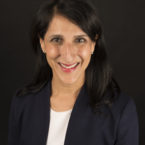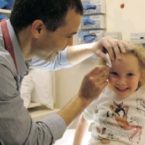Abstract
Background
Saliva sampling is a promising alternative to nasopharyngeal swabs for SARS-CoV-2 testing, but acceptability data is lacking. We characterize the acceptability of saliva sampling and nasopharyngeal swabs for primary decision makers and their children after experiencing both testing modalities.
Methods
We administered a cross-sectional survey to participants aged 6-to-17 years and their primary decision makers at an Ottawa community COVID-19 testing centre in March 2021. Included were participants meeting local guidelines for testing. Excluded were those identified prior to participation as having inability to complete the consent, sampling, or survey process. Acceptability in multiple hypothetical scenarios was rated using a 5-point Likert scale. Pain was measured using the Faces Pain Scale—Revised (FPS-R). Preference for testing was assessed with direct binary questions.
Results
48 participants and 48 primary decision makers completed the survey. Nasopharyngeal swab acceptability differed between scenarios, ranging 79% [95%CI: 66, 88] to 100% [95%CI: 95, 100]; saliva sampling acceptability was similar across scenarios, ranging 92% [95%CI: 82, 97] to 98% [95%CI: 89, 99]. 58% of youth described significant pain with nasopharyngeal swabbing, versus none with saliva sampling. 90% of children prefer saliva sampling. 66% of primary decision makers would prefer nasopharyngeal swabbing if it were 10% more sensitive.
Conclusion
Though youth prefer saliva sampling over nasopharyngeal swabs, primary decision makers present for testing remain highly accepting of both. Acceptance of nasopharyngeal swabs, however, varies with the testing indication and is influenced by perceived test accuracy. Understanding factors that influence sampling acceptance will inform more successful testing strategies.
Researchers
-
Maala Bhatt
Scientist, CHEO Research Institute
-
Roger Zemek
Senior Scientist, CHEO Research Institute
-
Richard Webster
Investigator, CHEO Research Institute
-
Stuart Harman
Investigator, CHEO Research Institute




